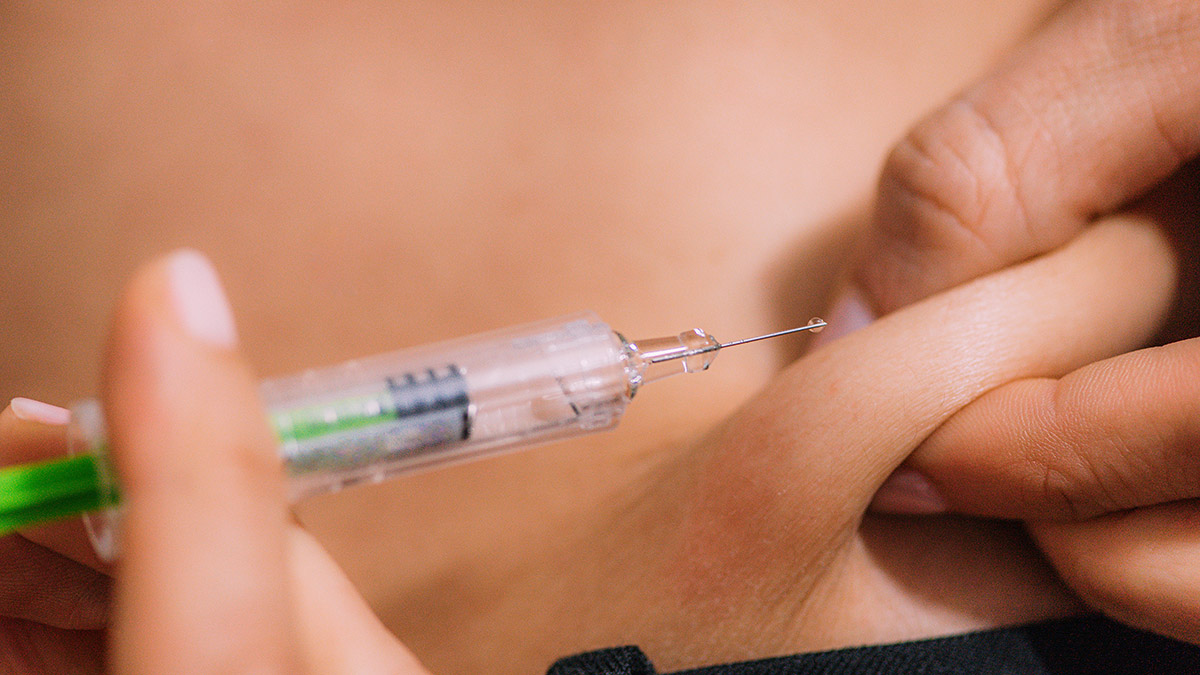

Finance
How Much Does Accutane Cost With Insurance?
Modified: February 21, 2024
Discover the average cost of Accutane with insurance and how it affects your finances. Get the information you need to plan your budget and manage your expenses.
(Many of the links in this article redirect to a specific reviewed product. Your purchase of these products through affiliate links helps to generate commission for LiveWell, at no extra cost. Learn more)
Table of Contents
Introduction
Accutane is a powerful medication prescribed for severe cases of acne. It is known for its effectiveness in treating stubborn forms of acne that have not responded to other treatments. However, the high cost of Accutane can be a major barrier for many individuals seeking this medication.
Fortunately, insurance coverage can help individuals offset the expenses associated with Accutane. In this article, we will explore how insurance plays a role in the overall cost of Accutane and provide tips on how to save money.
Before diving into the details, it is important to understand what Accutane is and how it works. Accutane, also known by its generic name isotretinoin, is a retinoid medication that reduces the production of oil in the skin and helps prevent clogged pores. It is typically prescribed for severe nodular acne that cannot be effectively treated with other medications or therapies.
While Accutane can be highly effective, it also comes with potential side effects and requires close medical supervision. It should only be taken under the guidance of a qualified healthcare professional.
Now, let’s explore how insurance coverage can impact the overall cost of Accutane.
Understanding Accutane
Accutane, also known as isotretinoin, is a medication primarily used to treat severe and persistent acne. It belongs to a class of drugs called retinoids, which are derived from vitamin A. Accutane works by reducing the production of oil in the sebaceous glands, preventing clogged pores, and reducing inflammation.
This medication is typically prescribed when other acne treatments have failed to produce satisfactory results. It is reserved for severe cases of acne, including cystic acne or nodular acne, which can be painful, disfiguring, and resistant to other therapies.
Accutane is not a quick fix for acne. It is usually taken over a period of several months, and results are seen gradually. This medication is known for its effectiveness, with many patients experiencing significant improvement in their acne after completing a course of treatment.
However, it is important to note that Accutane has potential side effects and requires careful monitoring by a healthcare professional. Common side effects may include dryness of the skin, lips, and eyes, as well as increased sensitivity to sunlight. More serious side effects, although rare, can include depression, suicidal thoughts, and birth defects if taken during pregnancy. It is crucial to discuss these risks with your doctor before starting Accutane.
Another important aspect to consider is that Accutane should not be taken with certain medications or supplements, as they can interact and increase the risk of side effects. Your healthcare provider will review your medical history and current medications to ensure that Accutane is safe for you to take.
Understanding how Accutane works and its potential side effects is crucial before starting this medication. It is essential to have open and honest communication with your healthcare provider to evaluate whether Accutane is the right treatment option for your acne.
The Role of Insurance in Accutane Cost
Insurance coverage plays a vital role in determining the out-of-pocket cost of Accutane. Without insurance, the cost of this medication can be exorbitant and unaffordable for many individuals.
Insurance plans vary in terms of coverage for prescription medications, and Accutane is no exception. Some insurance plans may fully cover the cost of Accutane, while others may require a copayment or coinsurance. It is crucial to review your insurance policy or contact your insurance provider to understand the extent of coverage for Accutane.
One of the key factors that insurance plans consider when determining coverage for Accutane is the severity of the acne being treated. Typically, insurance companies will prioritize coverage for individuals with moderate to severe acne that has not responded well to other treatment options. This is because Accutane is usually reserved for cases that are resistant to other therapies and pose a significant impact on the individual’s quality of life.
Insurance plans may also require prior authorization before approving coverage for Accutane. This means that your healthcare provider will need to submit documentation justifying the need for Accutane based on your specific case. The insurance company will review this information and make a decision regarding coverage.
It is important to note that even with insurance coverage, there may still be some out-of-pocket costs associated with Accutane. These costs can include copayments, coinsurance, or deductibles. It is essential to review your insurance policy and understand your financial responsibility for Accutane before starting treatment.
If you do not have insurance coverage for Accutane, there are other options to explore. Some pharmaceutical companies offer patient assistance programs or discounts for individuals who meet certain eligibility criteria. Additionally, there may be generic versions of Accutane available that can be more affordable. It is worth discussing these options with your healthcare provider or pharmacist to find the most cost-effective solution.
Having insurance coverage for Accutane can significantly reduce the financial burden associated with this medication. It is important to understand your insurance policy, explore alternative options if needed, and plan ahead to ensure that Accutane remains accessible and affordable for you.
Factors Affecting Accutane Cost with Insurance
Several factors can influence the cost of Accutane even with insurance coverage. Understanding these factors can help you better navigate the financial aspect of your Accutane treatment.
1. Insurance Plan Coverage: The extent of coverage provided by your insurance plan is a significant factor in determining the cost of Accutane. Some plans may cover the full cost of the medication, while others may require copayments, coinsurance, or deductibles. It is crucial to review your insurance policy and understand the specific coverage details for Accutane.
2. Tier Level: Insurance plans often categorize medications into different tiers, with each tier having a different level of coverage and cost-sharing. Accutane may be placed in a higher tier, which could result in higher out-of-pocket costs for you. Consult with your insurance provider to determine the specific tier level for Accutane in your plan.
3. Prior Authorization: Some insurance plans require prior authorization for Accutane. This means that your healthcare provider needs to provide evidence of medical necessity for Accutane in your case. The prior authorization process can add time and potential administrative hurdles but is necessary to ensure insurance coverage. It is essential to work closely with your healthcare provider to complete this process effectively.
4. Prescription Drug Formulary: Insurance plans maintain a list of approved medications called a formulary. The formulary can influence the coverage and cost of Accutane. If Accutane is not included in your plan’s formulary, coverage may be limited, resulting in higher out-of-pocket costs for you. Check the formulary of your insurance plan or consult your healthcare provider to understand the coverage status of Accutane.
5. Location and Pharmacy Choice: The location of your pharmacy and the specific pharmacy you choose can impact the cost of Accutane. Prices may vary between different pharmacies, so it could be beneficial to compare prices and consider options like mail-order pharmacies or online providers. However, ensure that the pharmacy you choose is reputable and licensed.
6. Health Savings Account (HSA) or Flexible Spending Account (FSA): If you have an HSA or FSA, you can use these pre-tax funds to pay for Accutane and potentially reduce your out-of-pocket costs. These accounts allow you to set aside money for qualified medical expenses, including prescription medications like Accutane.
Understanding these factors and how they can impact the cost of Accutane with insurance is essential. It is recommended to thoroughly review your insurance policy, consult with your healthcare provider, and explore cost-saving options to ensure you are well-prepared for the financial aspects of your Accutane treatment.
Average Cost of Accutane with Insurance
The average cost of Accutane with insurance can vary depending on several factors, including the specific insurance plan, coverage details, and individual out-of-pocket expenses. While it is difficult to provide an exact cost, we can provide a general overview of what you might expect.
Typically, insurance coverage for Accutane includes a copayment, coinsurance, or deductible. The specific amount you are responsible for will depend on your insurance plan and its coverage terms. Copayments are fixed amounts that you pay for each Accutane prescription, while coinsurance is a percentage of the medication cost that you are responsible for. Deductibles are the amount you must pay out-of-pocket before your insurance coverage begins.
On average, the copayment for Accutane can range from $30 to $60 per prescription. Coinsurance rates can vary but are typically around 10% to 30% of the medication cost. Deductibles can also vary, but once met, the subsequent Accutane prescriptions may be subject to copayments or coinsurance.
It is important to note that the cost of Accutane itself can also vary. The brand-name version of Accutane is typically more expensive than generic versions such as isotretinoin. The availability of generic alternatives may impact the overall cost of Accutane with insurance, as insurance plans often provide more favorable coverage for generic drugs.
Additionally, the cost of Accutane can vary depending on the dosage prescribed and the length of the treatment course. Higher dosages or longer treatment durations may result in higher costs. Your healthcare provider will determine the appropriate dosage and duration based on your specific acne condition.
It is crucial to review your insurance plan and its coverage details to have a clearer understanding of the average cost you can expect for Accutane. Contacting your insurance provider or reviewing your policy documents will help you determine the specific copayment, coinsurance, or deductible for Accutane.
If the cost of Accutane with insurance is still a concern, you can explore alternative cost-saving strategies. This may include utilizing patient assistance programs offered by pharmaceutical companies or considering generic versions of the medication, which tend to be more affordable.
By understanding the average cost of Accutane with insurance and exploring available cost-saving options, you can better plan and manage the financial aspects of your Accutane treatment.
How to Save Money on Accutane with Insurance
While Accutane can be an effective treatment for severe acne, it can also come with a hefty price tag. However, there are several strategies you can employ to save money on Accutane with insurance. Here are some tips to help you reduce the financial burden of this medication:
- Utilize generic versions: Generic versions of Accutane, such as isotretinoin, are often more affordable than the brand-name medication. Check with your healthcare provider and insurance plan to see if generic options are available, and discuss the potential cost savings.
- Compare pharmacy prices: Prices for prescription medications can vary between different pharmacies. Take the time to compare prices between local pharmacies, online providers, and mail-order options. However, ensure that the pharmacy you choose is reputable and certified.
- Maximize insurance benefits: Understand the coverage details of your insurance plan and take full advantage of the benefits available to you. This includes ensuring that Accutane is included in the formulary and reviewing any copayments, coinsurance, or deductibles that apply. Additionally, explore whether your plan offers mail-order options or preferred pharmacy networks that can provide additional cost savings.
- Consider prescription discount cards: There are various prescription discount programs and cards available that can help lower the cost of Accutane. These programs can provide significant discounts and may be used in conjunction with your insurance coverage. Research different discount card options and compare the savings they offer.
- Investigate patient assistance programs: Pharmaceutical companies often have patient assistance programs for individuals who meet certain eligibility criteria. These programs can provide free or discounted medications, including Accutane. Research the patient assistance programs available for Accutane, and check if you qualify for any of them.
- Consider alternative dosing strategies: Discuss alternative dosing strategies with your healthcare provider. In some cases, a lower dose or a shorter treatment duration may be just as effective for your specific acne condition. This can help reduce the overall cost of the medication.
- Utilize health savings accounts (HSAs) or flexible spending accounts (FSAs): If you have an HSA or FSA, consider using these pre-tax funds to pay for your Accutane prescription. This can help reduce your out-of-pocket expenses.
Remember to consult with your healthcare provider, pharmacist, and insurance provider before making any decisions regarding cost-saving strategies. They can provide personalized advice and guidance based on your specific situation.
By implementing these money-saving tips, you can alleviate some of the financial burden associated with Accutane and ensure that you can continue your treatment effectively.
Tips for Dealing with Insurance Coverage for Accutane
Dealing with insurance coverage for Accutane can be complex and confusing. However, with the right knowledge and approach, you can navigate the process more effectively. Here are some tips to help you when dealing with insurance coverage for Accutane:
- Review your insurance policy: Take the time to thoroughly review your insurance policy and understand the coverage details for prescription medications. Look for specific information on coverage for Accutane, including copayments, coinsurance, deductibles, and any necessary authorizations.
- Understand the formulary: Familiarize yourself with your insurance plan’s formulary, which is a list of approved medications. Check if Accutane is included in the formulary, as this can impact coverage and cost. If Accutane is not included, discuss alternative treatment options or explore the possibility of an exception with your healthcare provider and insurance company.
- Communicate with your healthcare provider: Maintain open and honest communication with your healthcare provider regarding your insurance coverage for Accutane. They can provide guidance and support throughout the process, including assisting with prior authorizations or appeals if necessary.
- Obtain prior authorization if required: If your insurance plan requires prior authorization for Accutane, ensure that your healthcare provider completes the necessary paperwork and provides all relevant documentation. This process can take time, so start early to avoid any delays in accessing your medication.
- Explore alternative pharmacies: Different pharmacies may have varying prices for Accutane. Compare prices between local pharmacies, online providers, and mail-order options to find the most affordable option. Remember to consider factors such as reputation and safety when choosing a pharmacy.
- Consider specialty pharmacy networks: Some insurance plans have specialty pharmacy networks that offer additional cost savings for certain medications. Check if Accutane is eligible for these specialty networks and explore the potential cost benefits they may provide.
- Keep track of your expenses: Maintain records of all expenses related to Accutane, including copayments, coinsurance, and deductibles. This information can be useful when evaluating your insurance coverage, tracking your healthcare expenses, or applying for patient assistance programs.
- Persist in appeal if necessary: If your insurance claim for Accutane is denied, don’t give up. You have the right to appeal the decision. Work with your healthcare provider to gather additional supporting documentation and follow the necessary steps to appeal the decision. Often, a successful appeal can result in coverage being approved.
Remember, each insurance plan is unique, and it’s important to be proactive and advocate for yourself to ensure you receive the coverage you need. Stay informed, maintain clear communication with your healthcare provider and insurance company, and explore all available options to make the most of your insurance coverage for Accutane.
Conclusion
Accutane can be a highly effective treatment for severe acne, but its cost can be a barrier for many individuals. However, with insurance coverage, it becomes more accessible and affordable. Understanding the role of insurance in Accutane cost is crucial to ensure that you can receive the medication without excessive financial burden.
Factors such as insurance plan coverage, tier levels, prior authorization requirements, and prescription drug formularies can all impact the cost of Accutane with insurance. It is important to review your insurance policy and explore cost-saving strategies to maximize your benefits.
By utilizing generic versions, comparing pharmacy prices, maximizing insurance benefits, using prescription discount cards, exploring patient assistance programs, considering alternative dosing strategies, and leveraging HSAs or FSAs, you can save money on Accutane with insurance.
Dealing with insurance coverage for Accutane requires proactive engagement and effective communication. Reviewing your insurance policy in detail, understanding the formulary, obtaining prior authorization if needed, and seeking support from your healthcare provider are all important steps in the process.
Remember, each insurance plan is different, and it is essential to stay informed and advocate for yourself. Don’t hesitate to explore alternative pharmacies or pursue appeals if necessary to ensure that you receive the coverage and affordability you deserve for Accutane.
Acne can have both physical and emotional impacts on individuals, and Accutane offers a powerful solution for those who need it. By navigating the insurance coverage process effectively and implementing cost-saving strategies, you can access and afford Accutane to effectively manage your severe acne, leading to improved skin and increased self-confidence.
Consult with your healthcare provider, review your insurance policy, and take advantage of available resources and assistance programs to ensure that the cost of Accutane with insurance is manageable for you. With proper planning and informed decision-making, you can prioritize your skincare needs and achieve the best possible outcomes with Accutane.














